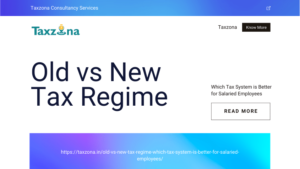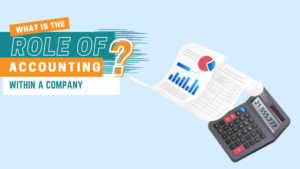Finalisation of Accounts
It has been observed that most Accountants hand over incomplete accounts to the Chartered Accountants at the time of filling annual returns of the company or at the time of filling ITR. In this article, we’ll be discussing some essential finalization tips for the Accountants to be followed by them to be in the position to complete the books in all respect before submitting the accounts to the management or Chartered Accountants.
1. Recording Expenses Payable or Outstanding Expenses
All the Expenses pertaining to the financial year must be recorded in the books even if the payment stands outstanding or payable at the end of the year. Most of the Businesses in India follow the Accrual system of outsource accounting services, according to which expenses for the last month of the year must be recorded in the books as outstanding or you can say payable in next year.
Rent payable, Salary payable, Electricity payable, etc. are a few examples of expenses that must be added to the Expenses in the Profit and loss account and appear in the Current Liability.
Check the List of recurring expenses and make sure all the Bills or Invoices for the period are correctly registered into the Books of Accounts.
2. Adjustment of Non-Business Expenses or Personal Expenses
Even if you are running a proprietary business where you are the sole owner, non-business transactions need to be eliminated for calculating real business profit and ascertaining the business’s correct assets and liabilities.
These transactions include personal expenses of the owner, director, medical expenses of the owner, Personal Loan, personal tax payments, etc. Apart from this certain expenses are disallowed as per the Income-tax Act which needs to be taken care of.
How to adjust Non-Business transactions
- Identify the transactions not related to the business and
- pass journal entries to give effect to the owner’s capital account or the Directors’ personal account.
3. Appropriate Effect of Depreciation
It is the most crucial Non Cash expense which has a huge impact on the profitability and taxability of the Firm or Company. It reduces the Cost of the Fixed Assets as well as increases the operating cost of the Firm or Company. Treatment of Depreciation is the same irrespective of the method adopted by the Firm or Company. According to Income Tax Act,1961, it allows the WDV (Written Down Value) method for calculating Income tax liability.

Check and Compute the Depreciation as per the method adopted by the firm or company and also compute the Depreciation under applicable laws such as Income Tax Act 1961, Companies Act 2013, etc.
4. Loans Taken & its Repayment and the Interest Component
Accountants sometimes fail to obtain the loan repayment schedule and only pass the payment entry by reducing the loan balances. This practice gives the wrong closing figure of the outstanding loan and also misses to record the Interest Portion for the year. The interest component must be Debited to Interest Expenses as Indirect Expenses under the Profit and Loss account and must reduce the principal portion from the loan liability.
The Accountant must obtain the loan repayment schedule from the lender bank or financial institute and also get the closing balance certificate to match your Interest and Principal Repayment amount for the respective financial year.
5. Bank Reconciliation
To avoid omission, errors, teeming, lading and even major frauds, Bank reconciliation proves to be an essential Internal tool that gives the reason for the differences between Book Bank balance and Balance in Bank statement. It provides the transaction-wise reasoning for the deviation of Balances in our book and Bank Statement.
It is always advisable to record the Bank transaction as per the Cheque Book and Receipt Book and prepare the Reconciliation on a monthly basis.
6. Debtors & Creditors Confirmation

Accounts Receivables and Accounts Payables are the most essential items of the Balance Sheet. Asking for the ledger accounts for the Financial year from the parties ensures the correctness of the books as well as it also enables the accountant to reconcile any deviation in the ledgers and ensure that all the transactions are recorded and balance at the end of the financials years tallies in the books of both the parties.
7. Cash payments
Chances of Misappropriation are high in cash payments. It is also disallowed to make payments in cash more than Rs. 10,000/- in a day to a single party. Cash payment must be monitored throughout the year on a transaction basis. All the payments must be supported with the payment voucher with the signature and bills must be attached. The concept of petty cash was introduced in later years which involves allotting daily a cash amount to the accountant and getting transaction details of the same on daily basis.
8. Stock in Trade
There are two effects in the books of accounts of closing stock, one in the Current Asset and the other on the credit side of the Trading/ Manufacturing Account. Accountants must perform Physical verification at the end of every month and reconcile the physical stock with the stock book. Any adjustment of stock loss, absorption or losses must be incorporated in the Stock Book.
9. Statutory Liability
Every organisation is required to maintain its Books to comply with the law of the land and also needs to pay the statutory dues to claim the expenses against the income. In India, Acts like Income Tax Act, GST Act, Professional Tax, ESIC, Provident Fund, Companies Act, etc. are to be taken care of and hence accountants are expected to have a thorough knowledge of Applicable Statutory Laws.
Conclusion:
There are limitations in the scope of work by Management review or audit by CA therefore It is always advisable to be conscious at the root level of recording and finalising the books.










